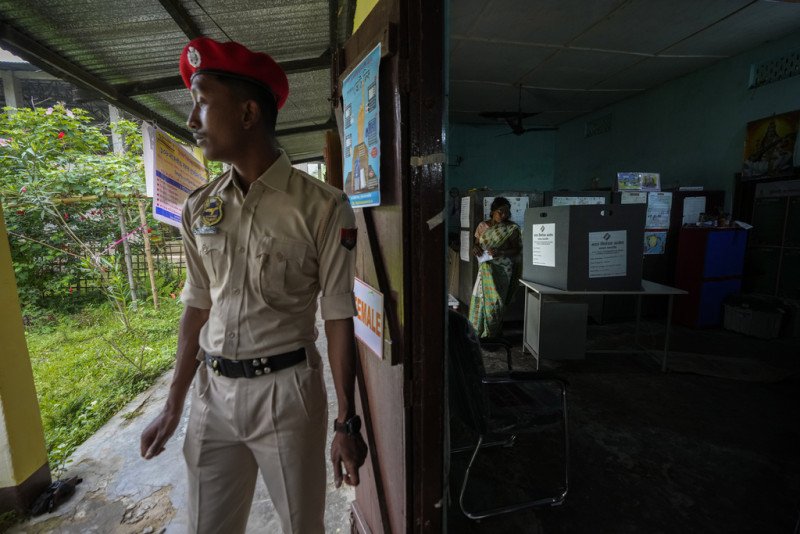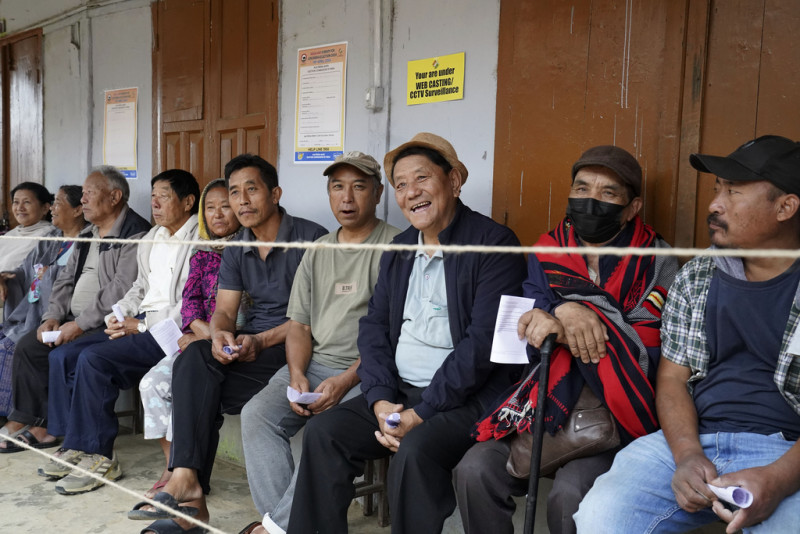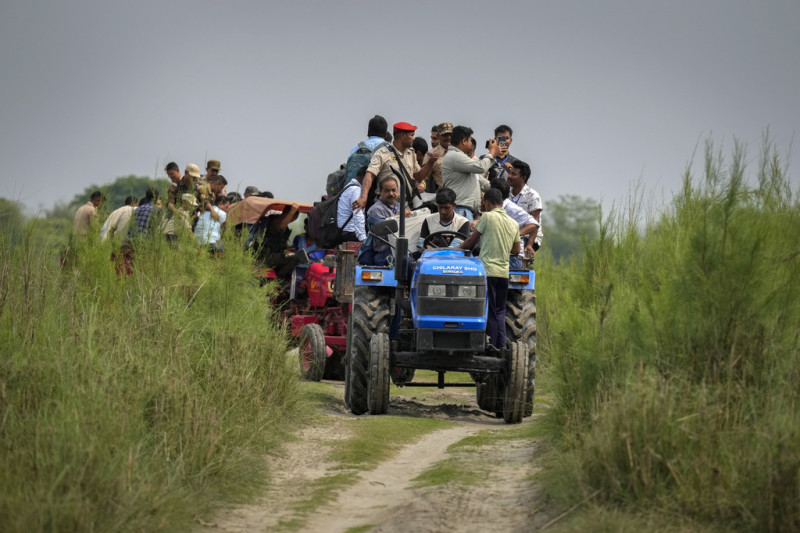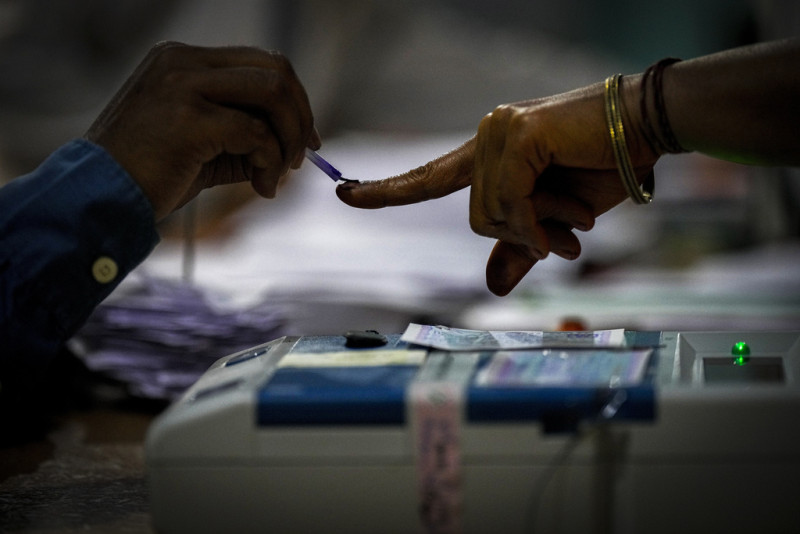Today is the first of a total of seven days of voting, a process that ends on June 1st and the results will be announced on June 4th.
Indians go to the polls today to choose their next parliament.
Today is the first of a total of seven days of voting, a process that ends on June 1st and the results will be announced on June 4th.
The Prime Minister Narendra Modi is hoping for a third consecutive term while opposition parties, including the Congress, have formed an alliance in several states to take on his party.
The big issues the new government is called upon to solve are unemployment and rising product prices.
Indians vote today in the first of seven-phase general elections.
Friday’s vote will send 102 MPs to the lower house of parliament. About 167 million voters are eligible to vote in 187,000 polling stations.
Of these voters, 84 million are men, 82 million are women and 11,371 are classified as third gender voters.
This time the identity of all the voters is being ensured in the elections so that fake voters can be identified.
Please come out of home and vote for a prosperous and secured India 🇮🇳 if you are part of the first phase of the election. pic.twitter.com/mCTv7e7wGi
— Frontalforce 🇮🇳 (@FrontalForce) April 19, 2024
Today the fates of 1,625 candidates will be decided. Female candidates make up only a fraction of that number at 134.
About 1.8 million election officials will oversee the voting process. But transporting such a large number of personnel is a herculean task, requiring the servicing of 41 helicopters, 84 special trains and almost 100,000 vehicles.
Why doesn’t everyone vote?
In the 2019 general election, almost 615 million people – 67% of the more than 945 million voters – voted, setting a record for the highest voter turnout.
This election also saw the long-standing gender disparity in turnout disappear. However, nearly a third abstained – city-dwellers, young people and immigrants made up the bulk of the 300 million absentee voters.
India’s voter turnout is better compared to many advanced democracies. Analysts believe that high voter turnout often signifies loyalty to the political system and a desire for government change – studies in both India and the US have also revealed a link between high turnout and anti-incumbency sentiments.
More than 163 million people are eligible to vote in the first phase of the election taking place today.
In the 2019 general election, five polling officials traveled by bus and on foot for two days so that a lone voter – a 39-year-old woman in the northeastern state of Arunachal Pradesh – could cast her vote.
The elections are being held in an atmosphere of aggression
Opposition leaders have accused the Modi government of arming federal agencies to crack down on its opponents and reduce the chances of fair elections.
Weeks before voting was due to begin, authorities arrested Delhi Chief Minister Arvind Kejriwal on corruption charges. Just weeks earlier, the economic crime agency arrested another opposition chief minister – Hemant Soren of Jharkhand state.
In February, the main opposition Congress party said its bank accounts were frozen by the income tax department. The party said it was the government’s attempt to financially cripple its campaigns ahead of the elections – a charge the BJP denies.
Why are elections taking so long in India?
India is the world’s most populous nation and, as a democracy, every voter in the country’s 28 states and eight union territories will have the opportunity to vote.
The mammoth election showdown it will last for a month and a half and great logistical planning is required to ensure that voting is conducted methodically and peacefully.
In smaller states and federal territories, voting will be completed in a single day. Some of the larger states will see two to four days of voting and in heavily populated states like Uttar Pradesh, Bihar and West Bengal, voting will be held in all seven phases.
Authorities will use gaps between phases to move polling and security personnel.
A pre-poll survey by think-tank CSDS-Lokniti found that unemployment, rising prices and growth top the list of voters’ concerns. It said 27% of respondents thought unemployment was the most important issue to them – a huge increase from 11% in a similar survey before the 2019 election.
The percentage of respondents worried about inflation also increased by 19% compared to 2019.
Only 8% of respondents voluntarily listed corruption and a large new Hindu temple as major concerns.
In the survey, more than 22% of respondents said the temple topped their list of actions they “liked most” by the current government, while almost half said building the temple would help consolidate Hinduism. identity.
There are more than 8.2 million voters between the ages of 85-99 and 230,000 centenarians. In recent weeks, Commission officials have been visiting their homes to collect their ballots.
For the first time, the Election Commission allows elderly and disabled voters to vote from home.
Source :Skai
With a wealth of experience honed over 4+ years in journalism, I bring a seasoned voice to the world of news. Currently, I work as a freelance writer and editor, always seeking new opportunities to tell compelling stories in the field of world news.














